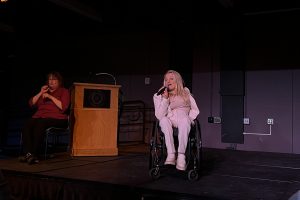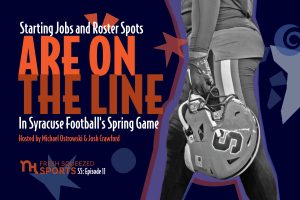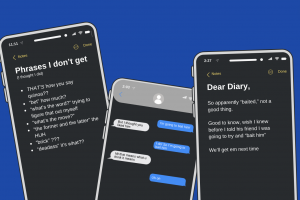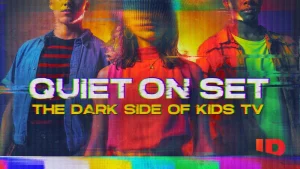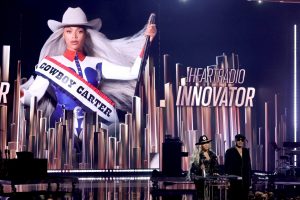Nyle DiMarco discusses activism and representation in SU talk
Nyle DiMarco discusses deaf representation in SU talk

Nyle DiMarco, a model, deaf activist, and ambassador for the deaf community, closed the spring University Lectures series on Tuesday with a conversation about representation and his experiences as a deaf person.
The lecture was moderated by Kate Corbett Pollack, the coordinator for SU’s Disability Cultural Center, and translated in American Sign Language by Greyson Van Pelt. DiMarco was born into a multigenerational deaf family, which he said was “like a utopia” as it gave him exposure to the deaf community and ASL from birth. He explained that most deaf children are born to hearing parents, which can be detrimental to their sense of identity and socialization if they are not exposed to other deaf people from a young age.
“It’s a lack of resources and a lack of community exposure that brings (hearing parents) to raise children making, unfortunately, a lot of missteps,” DiMarco said. “For a child to fully acquire language, it has to be offered before the age of five — there are certain benchmarks that that child needs to meet.”
DiMarco had experiences both in deaf and mainstream schools growing up. As the only deaf child among hearing peers and teachers, he was reduced to being known as “the deaf boy,” and others were not willing to learn sign language to communicate with him. DiMarco said he began to internalize this disconnection with his peers but regained his confidence upon returning to a deaf school and finding a community with other deaf people.
“I always encourage people, in order to dream big, to really find who you are and your identity, to love yourself,” DiMarco said.
Following his respective America’s Next Top Model and Dancing with the Stars wins, DiMarco began to focus on deaf representation in the entertainment industry, producing television shows and documentaries. One of his biggest projects, Deaf U, follows deaf college students of all different backgrounds in their college experiences.
DiMarco said the show included people from all races, genders, ethnicities, and backgrounds to ensure fair representation of the deaf community, which he had not before seen in the mainstream media. Deaf U also had a deaf production crew; DiMarco said he was focused on empowering deaf creators in all parts of the show’s process.
DiMarco is also a prominent activist for the deaf community. After originally studying to be a math teacher in college, he said he first became interested in activism while traveling abroad during a gap year. In his travels, DiMarco made an effort to visit deaf schools and connect with local communities, which exposed him to the lack of resources that deaf students have in many other parts of the world.
Much of DiMarco’s activism is linked with the organization LEAD-K, or Language Equality and Acquisition for Deaf Kids. As the organization’s celebrity spokesperson, DiMarco has used his platform to speak with politicians and the United Nations about better resources for deaf children. He said LEAD-K helped create a bill to provide deaf children access to language and education by age 5, which has since been passed in some states.
He also helped create The ASL App, which includes over 800 conversational phrases and is one of the most credible apps to assist with ASL because it was designed by deaf people.
DiMarco discussed how he hoped hearing people would better understand the value of deaf culture and learning ASL. For a long time, he said, he considered himself deaf but not disabled, which he acknowledged came from internalized shame and ableism. He said he knows that he and other deaf people are very capable and he does not see it as a bad thing at all.
“To 99% of the world I’m disabled, and I am,” DiMarco said. “And I’ve learned to accept that.

